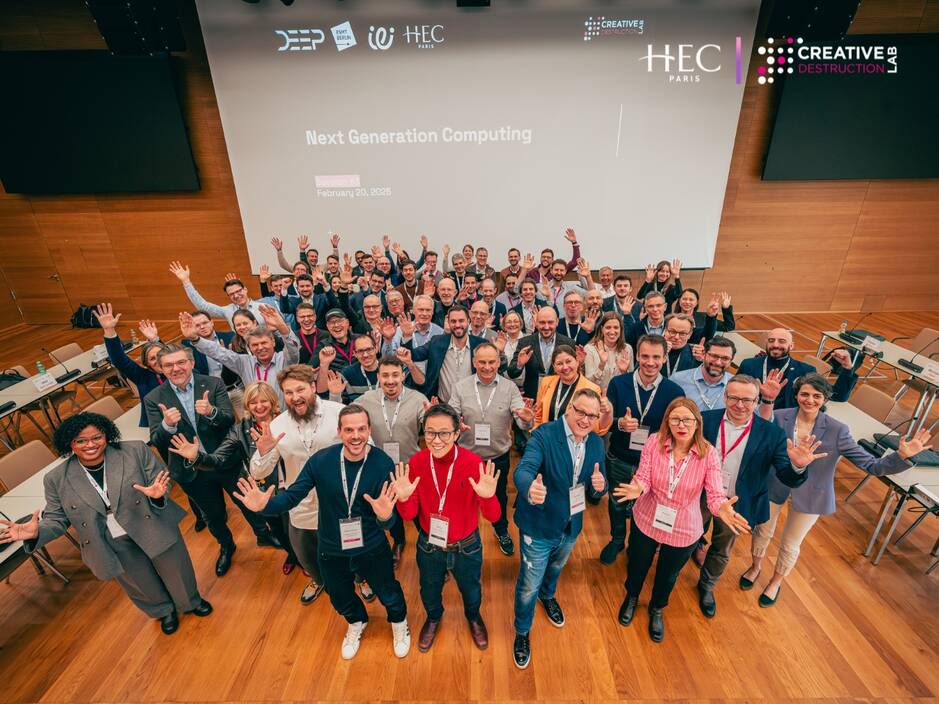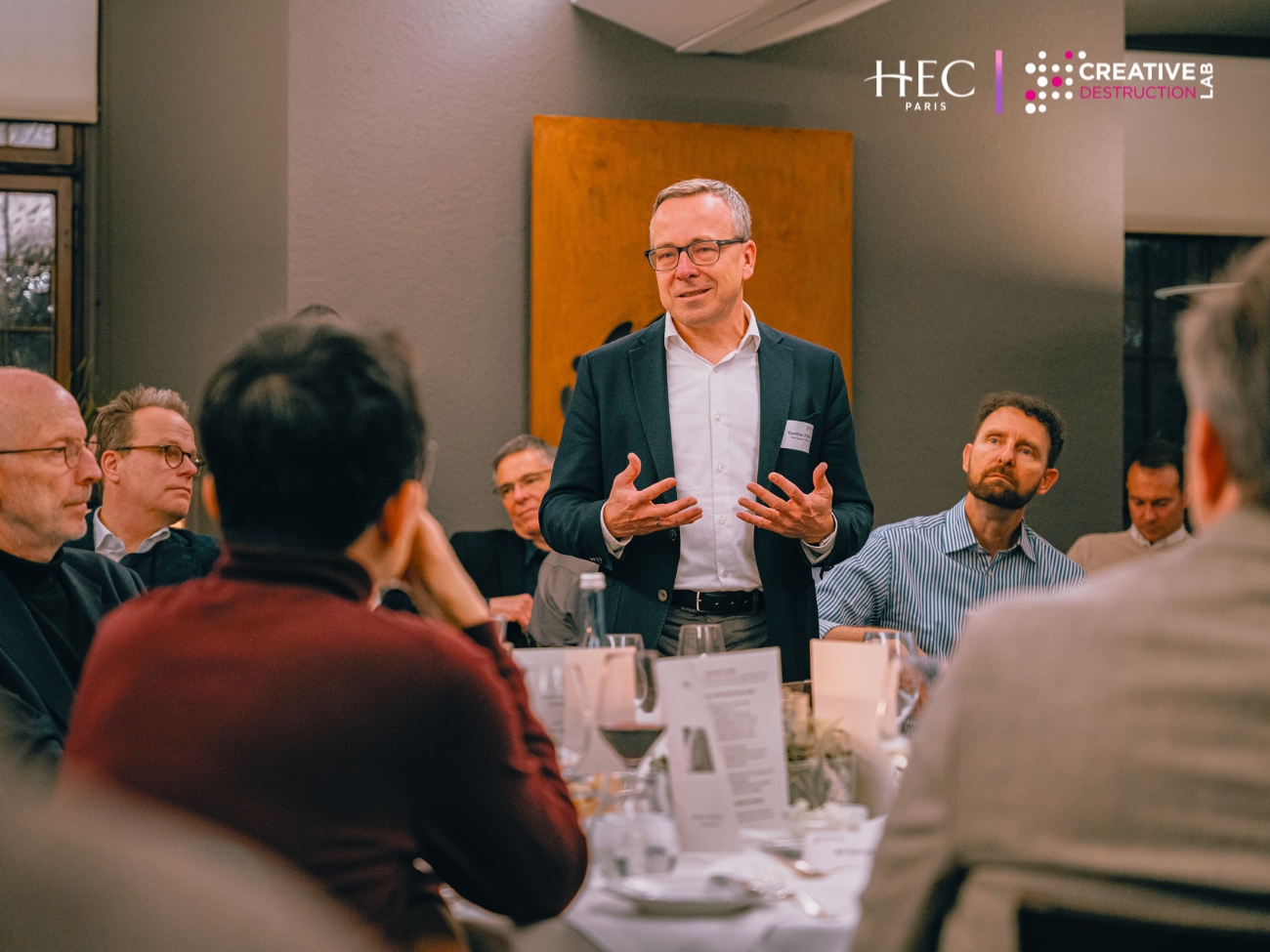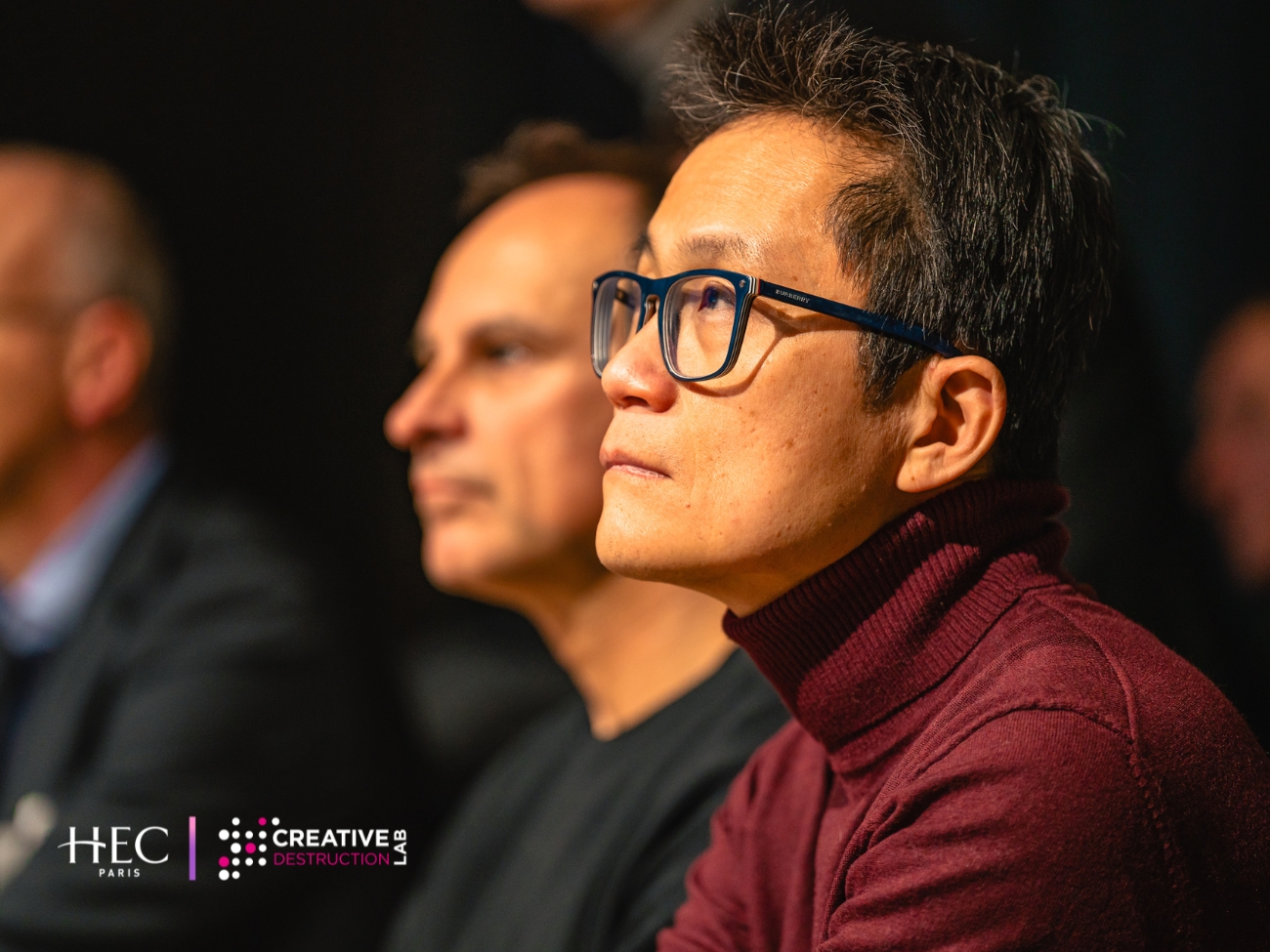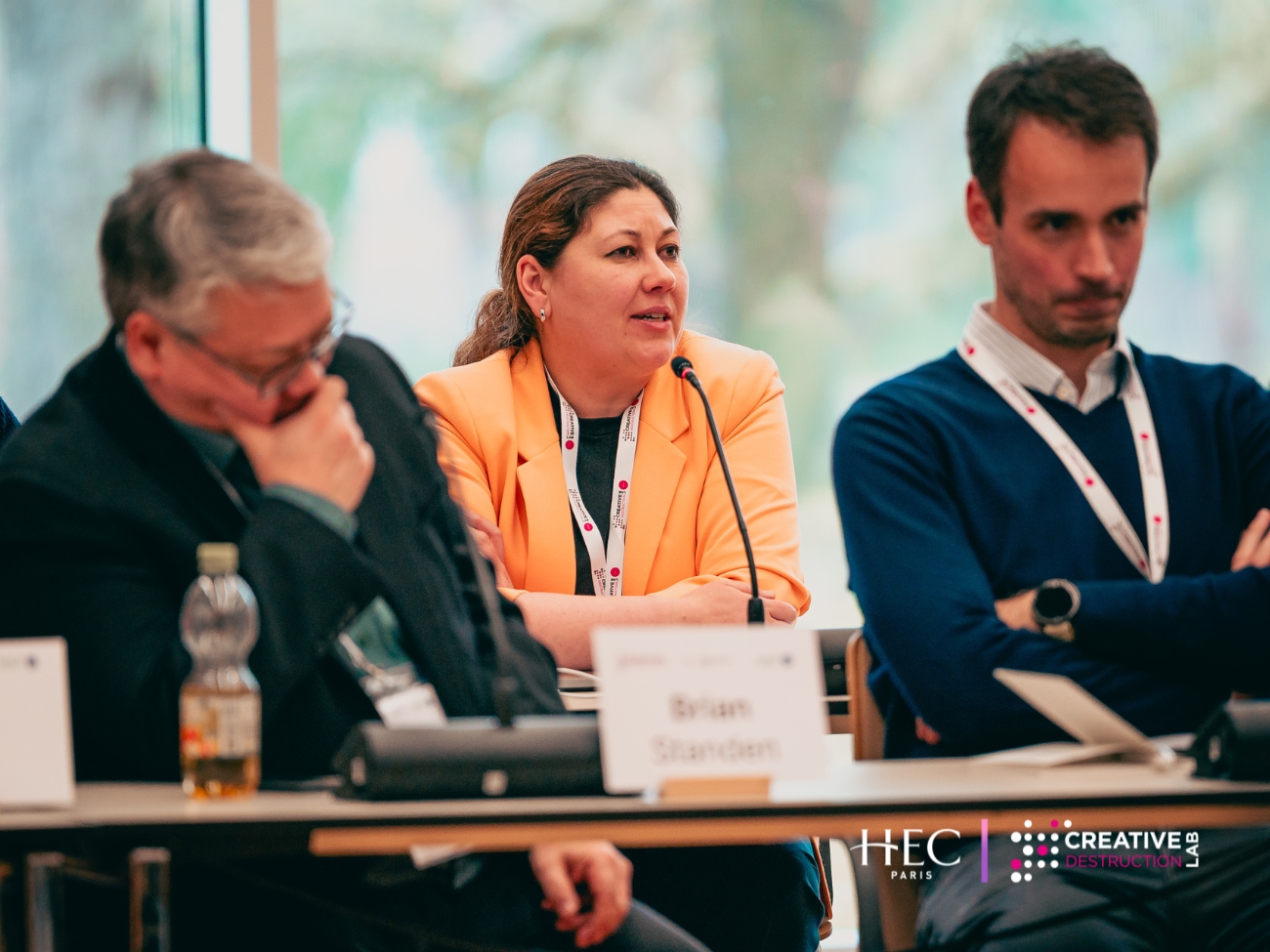The Global Race for Computing Power: Why Next-Gen Tech Matters More Than Ever
As artificial intelligence, robotics, and global data demands surge, a new frontier is emerging—Next Generation Computing. Quantum, neuromorphic, photonic systems, and advanced semiconductors aren’t just buzzwords—they’re becoming the backbone of our future economy, digital sovereignty, and global sustainability. It’s no coincidence that leading economic, technology and innovation events are spotlighting this topic in their headline panels and discussions — from the 2024 World Economic Forum to the upcoming VivaTech 2025, quantum and next-gen computing are taking center stage.

Creative Destruction Lab, Session 3 of the Next Generation Computing Stream
At the recent Creative Destruction Lab (CDL) Next Gen Computing session in Heilbronn, Germany, global experts, scientists, investors, and founders gathered to address one urgent question: Can Europe keep up in the global computing race and should it lead?
Why Next Generation Computing Matters Now
The Next Generation Computing focuses on pioneering new computing concepts and algorithms that unlock the full potential of cutting-edge technologies, boosting computational performance while significantly reducing energy consumption. The most recent CDL session offered a rare insider perspective on why next-gen technologies are no longer just a frontier topic, but a critical force shaping the future of business, science, and society.
“It is not only important. It is the most important conversation happening in the world today.”
— Darrell Kopke, Executive Director, CDL-Vancouver, who came all the way from Canada to moderate the session.
CDL mentors and leaders pointed to the geopolitical urgency of building sovereign infrastructure. From AI energy demands to global innovation competition, the stakes couldn’t be higher. Gunther Friedl, Managing Director of the Dieter Schwarz Fondation (Stiftung), underlined the need for European technological sovereignty:
“We believe computing power is essential for Europe to remain competitive on a global stage.”
— Gunther Friedl, Managing Director, Dieter Schwarz Stiftung
In a world where AI capabilities are racing ahead, computing infrastructure must scale efficiently, ethically, and sustainably.
What’s Driving the Momentum?
The momentum behind Next Generation Computing isn’t just technological, it’s systemic. We’re witnessing a perfect storm of demand, innovation, and urgency that’s reshaping the digital infrastructure of our world.
Here are the key drivers behind the urgency:
- AI & Generative AI dominating every sector
- Data explosion pushing traditional computing to its limits
- Energy consumption becoming a bottleneck for large-scale AI training
- Global powerhouses (like the US and China) accelerating investments in quantum, neuromorphic, photonic, and semiconductor innovation
“We are hitting real bottlenecks in infrastructure and cybersecurity.”
— Ekaterina Almasque, General Partner at OpenOcean and CDL Mentor
From chatbots to self-driving cars, AI is no longer niche. It’s embedded in every industry. But while AI dominates the narrative, there’s far less focus on the invisible layer that enables it all: the compute infrastructure itself.
“AI is underpinning everything we do right now.” asserts Alan Lau, co-founder of Two Small Fish Ventures and CDL Mentor. As AI models grow in complexity, they demand exponentially more compute power, raising questions about sustainability, scalability, and access.
The old metaphor still holds true: data is the new oil, but it needs smarter refineries. With billions of connected devices, the rise of edge computing, robotics, and autonomous systems calls for a new breed of computing solutions - ones that are faster, leaner, and radically more efficient.
“With classical silicon-based computing, we’re running into a wall. We need new architectures - quantum, photonic, neuromorphic - to keep up.”
— Oliver Kahl, Principal at MIG Capital and CDL Mentor
Energy use is also reaching a critical point. Training large-scale AI models consumes massive power—raising concerns about grid stress and environmental impact. This is why next-gen solutions like neuromorphic computing are gaining traction—not only for speed but for unmatched energy efficiency.
“Neuromorphic computing is really about power efficiency... and that will be key to enabling the next generation of autonomous systems.”
— Florian Corgnou, Co-founder of Neurobus.
Another important shift: we’re witnessing a convergence of software and hardware, where cutting-edge algorithms are being paired with purpose-built chips and processors.
“The software-hardware convergence we’re seeing today is a relatively new phenomenon. There’s still a lot to figure out.”
— Alan Lau, Co-founder of Two Small Fish Ventures and CDL mentor
In short: innovation is accelerating, but the foundational infrastructure is struggling to keep pace. That’s where the opportunity lies and where the risks emerge for those who fall behind.
Europe’s Opportunity, and Responsibility
Europe is home to top-tier research, world-class academic institutions, and a strong commitment to regulatory leadership. But turning these strengths into commercial deep tech leadership? That’s the next big leap.
The session in Heilbronn made it clear: Europe has no shortage of talent, but it faces a commercialization gap. Deep tech ventures often emerge from academic labs, but struggle to scale, especially in hardware-intensive fields like semiconductors, quantum, and AI infrastructure.
“Some of the most brilliant minds are in our labs, but we fail to commercialize their ideas at scale.”
- Ekaterina Almasque
It’s not just about capital. It’s about mentorship, market access, and the ability to bridge science and business. This is where programs like Creative Destruction Lab come in, offering scientific founders a critical path from prototype to product.
“We can’t just race for innovation at any cost. We also need to invest with values in mind. Innovation that doesn’t just scale, but sustains our societies.” completed Ekaterina Almasque.
Universities like ESMT Berlin, TUM Campus Heilbronn, and HEC Paris are producing breakthrough work across quantum computing, AI ethics, and next-gen chip design. Foundations like Dieter Schwarz Stiftung are actively connecting European institutions to global ecosystems—Stanford, Oxford, Singapore, and beyond.
“We collaborate with leading universities and institutes globally, from Stanford to Singapore, because science drives progress.”
- Gunther Friedl, Managing Director, Dieter Schwarz Stiftung
If Europe can leverage its deep R&D base while building stronger commercialization pipelines, it can lead the next generation. Not just in technology, but in how that technology is brought to the world.
What’s Next?
Next-generation computing isn’t just a technical challenge—it’s a strategic one. And programs like Creative Destruction Lab (CDL) are providing the platform for bold ideas to evolve into impactful ventures. As the stream enters its final phase, ventures and mentors are preparing for the last session of this edition of the program.
Marking five years of operation, CDL-Paris will host a special multi-stream session from April 23 to 25, bringing together the graduating cohorts of four of its five streams: Climate, AI, Space, and Next Generation Computing.
The event will take place at TANGRAM, the CMA CGM Group’s new center of excellence. TANGRAM reflects the Group’s strong commitment to tackling today’s most urgent challenges (environmental, societal, and geopolitical) by acting as a catalyst for innovation.


